Traveling the world in a powered wheelchair
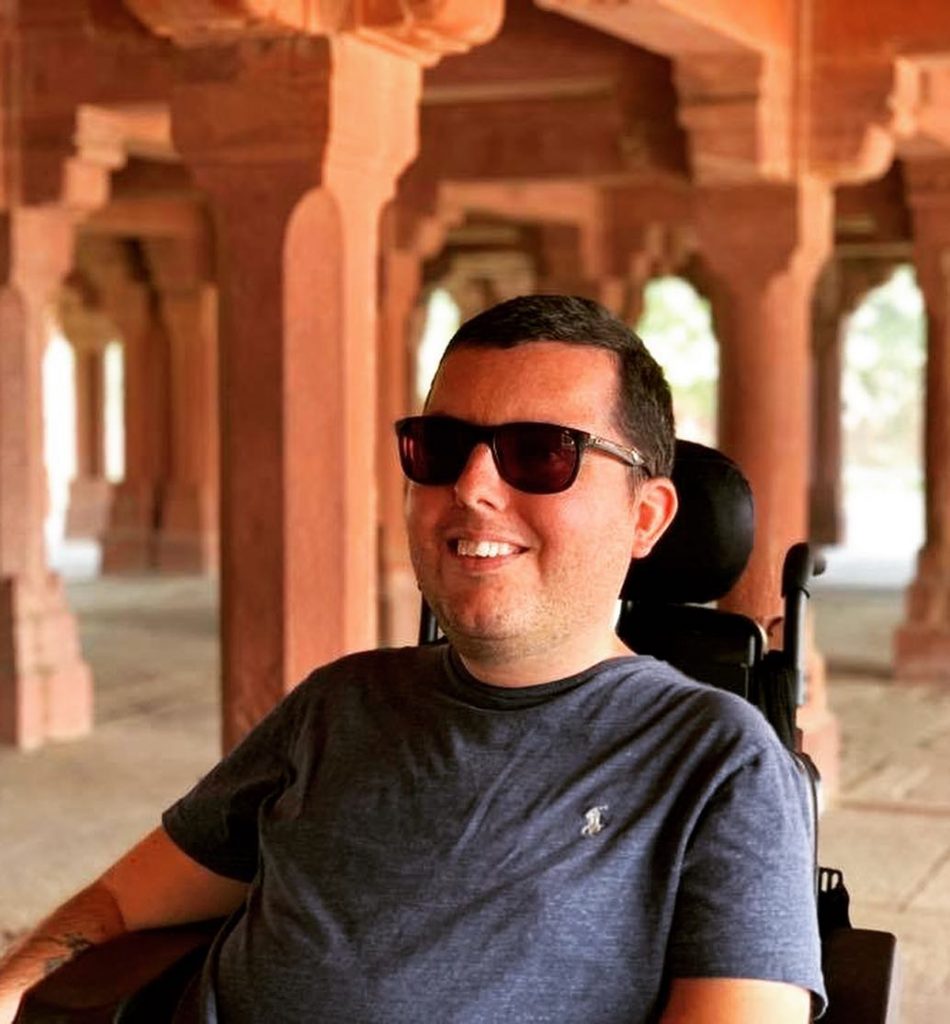
Travel blogger Cory Lee joins World Footprints hosts Tonya and Ian Fitzpatrick to talk about the joys and challenges of traveling the world in a powered wheelchair.
At the age of two, Cory Lee was diagnosed with spinal muscular atrophy, a form of muscular dystrophy. Because this disease is progressive it has served as a catalyst for Cory Lee to see as much of the world as he can.
Cory Lee, who runs the wheelchair travel blog Curb Free with Cory Lee, began traveling internationally when he was 15 and he’s never looked back. To date, he has visited all seven continents in his powered wheelchair. In fact, he is likely the first wheelchair traveler to achieve this goal. But there are many more countries that Cory Lee wants to check off on his travel wish list.
Traveling is a right for everyone to enjoy but, as we’ll hear from Cory Lee, the travel industry is not accommodating to every traveler.
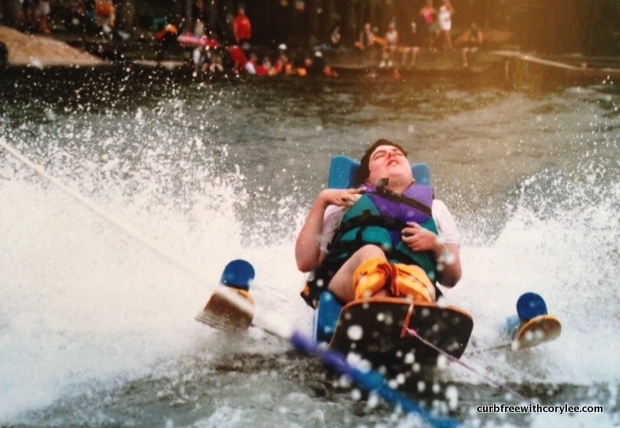
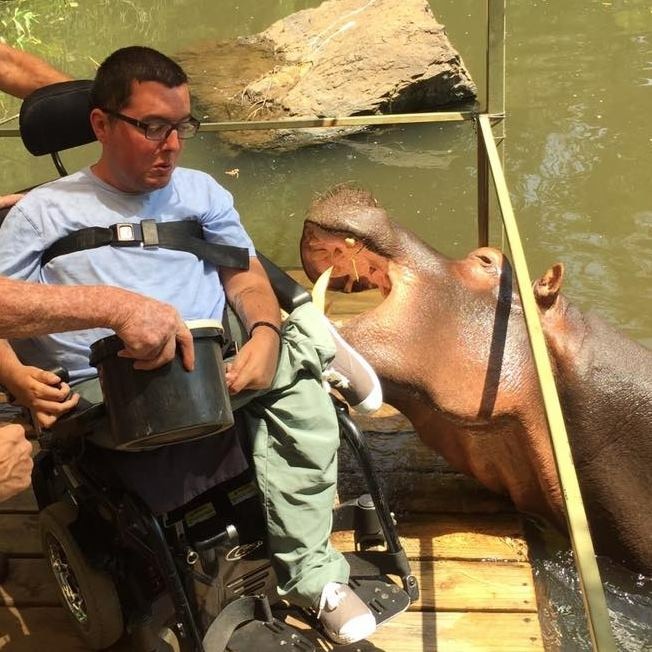
Book Your Travel To ANY Destination
Use the interactive map below to search, compare and book hotels & rentals at the best prices that are sourced from a variety of platforms including Booking.com, Hotels.com, Expedia, Vrbo and more. Search for ANY destination by clicking in the upper left corner of this map. You can also use the filter to fine tune your search, find restaurants, attractions and more!
Guests:
Tonya: I’m Tonya Fitzpatrick, Ian: And I’m Ian Fitzpatrick, and this is World Footprints. INTRO SEGMENT Cory Lee: I can’t stay in my powered wheelchair on the plane, so I have to stay in a regular plane seat. And then once I’m on the plane, I’m unable to get up again. So, there’s no getting up to go to the bathroom or any of that and I’m kind of just stranded right there in the plane seat. And so, it’s– you know, I’ve flown from Atlanta to Johannesburg, 17 hours nonstop. I flew LA to Sydney, Australia, 15 hours nonstop. And I’m really having to, like, dehydrate myself and not eat anything for two days in advance of the flight just to be able to fly. And so, that’s something that I should not have to be saying in the year 2020. I mean, something needs to happen with airlines and it’s– I’m constantly like fighting the airlines to get them to realize you know what all I go through to hopefully make a change. Ian: That’s Cory Lee, a world traveler and blogger who’s changing perceptions of travel and adventure possibilities for disabled travelers. His blog, Curb Free with Cory Lee, shares his experiences with a mix of inspiration and practical tips to show how, where and why a person with a disability has a world worth exploring. Tonya: Cory was diagnosed with type two spinal muscular atrophy at the age of two. And by the time he was four years old, he got his first powered wheelchair and took his first trip to Walt Disney World, a personal favorite of his. At 15, Cory’s first international trip took him to the Bahamas and sparked a desire to see the world that inspires him to this day. With seven continents and 37 countries visited and counting, Cory believes that travel is the best teacher and the world has taken notice. Cory has emerged as a leading thought leader on accessible travel. He’s developed a significant following on social media and he’s caught the eye of mainstream media outlets, such as CBS News, Travel Channel and National Geographic. Cory has won prestigious awards, including the Society of American Travel Writers Lowell Thomas Award, which he won for Best Travel blog, twice. And New Mobility magazine named him Person of the Year in 2018. And frankly, as my dear friend and I’m not being biased, I think he’s person of the year every year. Ian: Here’s our conversation with Cory Lee. Tonya: Cory Lee, welcome to World Footprints. Thank you so much for joining us. Cory Lee: Yeah, thank you so much for having me. I’m excited to be here with you. Tonya: Oh, it’s our pleasure. And I want to offer you congratulations, because I understand you were the first powered wheelchair traveler to visit all seven continents. Cory Lee: Yeah, earlier this year actually right before the pandemic happened, for the month of February, I went on a four-week adventure all across South America, and then to Antarctica with a cruise and it was really perfect timing. I mean, while we were on the cruise, we were starting to hear about the Coronavirus, but it was mainly like really only Asia and hadn’t fully made its way to America yet. And then like by the end of the cruise, we were starting to hear a bit more and get a little worried about it. And then like by the time I finally got home, it was like, we came back to a completely different world. And that was wild, but really perfect timing that we went to Antarctica. Tonya: Yeah, I’d say, I think we were actually cruising around the same time for a friend’s wedding. And mid-March and when we came back, I went right back into work, you know, when we left here only, I think there were just a couple of cases in Seattle. Cory Lee: Yeah. Tonya: And when I came back, my colleagues looked at me like I had three heads. And I didn’t understand why. But a little did we know that would be your last trip. You do a lot of traveling, when did the travel bug bite you? Cory Lee: Yeah, it really bit me I think for my young, young age. So, when I was growing up, my mom worked as a teacher and so we would really use the summer months always that she was off of work to really explored domestically here in the US. So, we would go to like Disney World every summer, we went to New York, Washington, DC, mostly places along the East Coast that we could just like take a road trip to. And then when I turned 15, we went to The Bahamas. And that was kind of the first trip where I got to see like a different culture and try new foods and eat like Conch Fritters and all the things that you know that traveling consists of. And so, that is really, I think, where the travel bug hit me or bit me. I should say, was in that trip to the Bahamas. And I just really thought, you know, if the Bahamas could be this close to the US and this amazing, then what would somewhere like India be like, or what would Morocco be like, or all of these other far-flung places around the world. Ian: Speaking of those places, a lot of places aren’t accessible to wheelchair travelers, but we understand you have a special powered wheelchair. Give our audience a sense of that and just your experience in traveling to some of these places that don’t have the laws and don’t have the infrastructure to accommodate wheelchairs. Cory Lee: Traveling with a power wheelchair, I mean, it’s difficult. I mean, I’m not going to lie about it, it’s tough, because my wheelchair weighs about 350 pounds, and then you put me in it, it’s 500 pounds total. And so, I mean it’s a piece of equipment to get around and on and off the plane and then trying to navigate around difficult destinations. But so far, I’ve made it to 37 countries and a powered wheelchair and I’ve been all over Europe. And I thought, you know, at one point in my early days, that it wouldn’t even be possible for me to go somewhere like Estonia or Finland or all of these amazing places, because I thought you know, it probably just be a bit too old and too rough to do with a wheelchair. But then when I actually got there and started exploring, I started realizing how amazing and how accessible the world really is. And so, even in a place like Helsinki, Finland, where I thought would have no access, I got there and then found out that they actually have over 300 wheelchair accessible taxis. And so, you know, sometimes the places that you think will not have any access, actually have some of the best. Tonya: I just want to give a visual for our audience because, you know, we talked about your powered wheelchair, but the wheels on your wheelchair, they remind me of a tank. I mean, for a serious business it’s like trying [0:07:30] [Indiscernible]. What is the model? Who makes your wheelchair? What model is it? Cory Lee: Yeah, I have a Quickie QM700. And I actually just got it just a few months ago, a brand new wheelchair and it’s a Quickie brand and they’re one of the biggest suppliers of power wheelchairs. I had manuals, so I’ve used the Quickie wheelchairs since I was four years old actually, that’s when I started using a power chair for the first time. And I remember even like the first day of Pre-K, I had just received my first powered wheelchair and then went to Pre-K. And on the first day of school, I ran over a kid’s that… and they started like crying and I started crying. And it caused the whole scene on the very first day of school but we made it somehow. Tonya: So, since the age of four, you’ve been in a wheelchair full-time. Cory Lee: Yeah, full-time since the age of four. Yeah. Tonya: And you have something called muscular dystrophy? Cory Lee: Yeah, it’s spinal muscular atrophy. So, it’s a form, you’ve probably heard of muscular dystrophy in like the MDA Telethon. So, it is a form of muscular dystrophy, and it’s genetic also so my great, great aunts and uncles, they’re actually 13 siblings in that one family. And four out of the 13 siblings had spinal muscular atrophy, and used wheelchairs. And so, I never got to meet them, unfortunately, they passed away before I was born. But I did grow up hearing all about them. And they were actually gospel singers and released an album. And they were known as the “Wheelchair Singers.” And so, they were– it was really quite something to grow up like hearing their story and hearing about them because they were touring as the Wheelchair Singers and singing at churches that were not accessible at the time. So, the churches had steps to get in, they had to physically be carried into the church, all four of them. And they didn’t have accessible vans so they had to be physically lifted into the van and from a young age I thought you know, if they could grow up in an era where there was no access and still have so much success, then you know anything really is possible, I think if you have enough determination. Tonya: Absolutely. So the travel bug, actually, I mean, I think it’s part of your DNA. Cory Lee: Yeah, absolutely. Yeah, I think so. I mean, they unfortunately, you know, they never got to travel internationally. But they were very well-known in the southeast and toured all over the East Coast. And, yeah, I think I definitely got a lot of it from them. Tonya: Wow. So, speaking of, you know, your travels domestically, internationally, whatever you do, it requires a lot of planning. Take us through some of your planning processes. Cory Lee: I usually start planning for any kind of like international trip up to, I would say, like six to 12 months in advance, just because it really gives me more time to… Well, I guess I’ll start with the first step. So, whenever I start planning a trip, I’ll actually look into the transportation and see if they do have wheelchair accessible taxis or accessible public transportation, because I don’t want to get to the destination, and then be unable to leave the airport. That would just not be any fun for anyone. So that’s kind of where I start. And then if they do have accessible transportation, then I’ll move on to researching hotels and attractions and things to do and all the fun stuff that goes into traveling. And so, I do start planning very, very early, just to have more time to really fully plan everything that I need to when it comes to accessibility. Ian: Given your experience over the years and planning your travels, I know you’ve gotten a sense as to who’s doing a great job in terms of accommodating, accessibility and in terms of the challenges that you face. What countries, what parts of the travel value chain are doing a good job in terms of airlines, hotels, cruise lines, countries and cities that seem to be doing a pretty decent job? Cory Lee: I mean, I really think that airlines have a long way to go to be fully accessible. I mean, it’s an issue that needs to– I mean it needs a serious awakening. And I’m not sure how quickly it’ll happen. But it’s something that I’m constantly striving to improve is the air travel process because I can’t stay in my power wheelchair on the plane. So, I have to stay in a regular plane seat. And then once I’m on the plane on unable to get up again. So, there’s no getting up to go to the bathroom or any of that. And I’m kind of just stranded right there in the plane seat. And so, it’s… you know, I’ve flown from Atlanta, to Johannesburg, 17 hours nonstop. I flew LA to Sydney, Australia, 15 hours nonstop. And I’m really having to like, dehydrate myself and not eat anything for two days in advance of the flight just to be able to fly. And so that’s something that I should not have to be saying in the year 2020. I mean, something needs to happen with the airlines. And it’s, I’m constantly like fighting the airlines to get them to realize you know what, all I go through to hopefully make a change. But there are some airlines that I think do better. So, I’m pretty loyal to Delta. And they, I mean, they definitely still have a long way to go, there’s no doubt about it. But they do a fairly good job of actually getting me on the plane and not damaging the wheelchair during the flight. So, I do stay loyal to them for that reason. You mentioned cruising and I think cruising is by far the most accessible way to travel because once you’re on the cruise ship, everything is right there on the ship so I don’t need to reach out and find an accessible taxi just to get to dinner. And I don’t need to find transportation because the show like they have the Broadway style shows on cruises, casinos, pools, restaurants, everything that I need is right there, so it eliminates a lot of the preparation like trying to find accessibility accommodations. And I really love cruising and I’ve gone on I think seven or eight cruises over the past 10 years and I can’t wait till we can all get back to cruising one day Tonya: Traveling. I just want to travel. Cory Lee: Right, anywhere. I’m happy to go anywhere. Tonya: The cruise ships are they pretty good about setting aside a certain number of rooms for wheelchair travelers so the doors are wide enough, the showers are accommodating? Cory Lee: Yeah, so cruise lines, they do have a good bit of accessible rooms. But I think again, it’s really important to book as far in advance as you can because the accessible rooms are not unlimited, and they definitely don’t have as many as they do the regular rooms. So, if you want an accessible room definitely book it as far in advance as you can. Tonya: I know when you’re traveling as well, you actually like to seek out what you call thrilling experiences. What are some of those? Cory Lee: I’m always a big fan of adventure. So, I’ve gone hot air ballooning over Las Vegas, over the Negev Desert in Israel, and over volcanoes in Catalonia, Spain. So, three times now I’ve gone waterskiing and I broke my arm doing it. Tonya: Oh, poor… Cory Lee: I know. But you know, we got a photo of you me waterskiing and it made for a good blog post, so at least I got that out of it. And now I never have to do it again, luckily. Tonya: Oh my God. Cory Lee: Yeah, I always try to find the most adventurous experiences that I can that are accessible. And I think by doing that, that it really shows other people with disabilities like you know, “If Cory can go waterskiing, then why can I?” And so, I hope that people see that and feel inspired, so you know, live as boldly as they can. This is the award-winning World Footprints podcast with Ian and Tanya Fitzpatrick. World Footprints connects you to the world through powerful storytelling that uncovers the full narrative of our cultural and human experiences. Travel deeper by visiting our website worldfootprints.com and make sure you sign up for our newsletter and receive a special gift we have just for subscribers. Tonya: Here’s more of our conversation with Cory Lee, world traveler and blogger who shares the world from a wheelchair users’ perspective, providing inspiration and unique insights along the way. Ian: I’m sure you’ve been able to speak and communicate with some of the folks in the community in terms of your travels and what that’s allowed you to do and see. And for those who may not have been encouraged or thought it was possible for them, what sorts of things do you hear from those folks in the community that just validate what you’re doing? Because I’ll be perfectly honest with you, I would not get on a pair of water skis. That’s out for me. Cory Lee: Yeah, well, after my experience, you know, I’m not sure if I would recommend it anyway. So maybe that’s a good thing. But I mean, to answer your question, though, it’s definitely rewarding whenever I receive an email or a message from someone that says, you know, they were inspired to travel for the first time since they became a wheelchair user because of my blog. And that happens almost weekly. And that’s something so rewarding. But I’ll never forget last year, I was actually at Disney World. And Disney is one of my favorite places in the world. I did my college internship at Disney World. I mean I am a Disney addict. I was rolling through Hollywood studios at Disney World and all of a sudden, I heard someone shouting “Cory Lee! Cory Lee!” then I turned around, and there was this young kid in a wheelchair. He was like seven or eight years old and his mom said that they had read my blog posts all about Disney World and so they then felt inspired to actually visit themselves. And, you know, they didn’t know I was going to be there. I didn’t know they were going to be there. But we were able to hang out that day and explore Disney World together. And it was just one of the best experiences ever. And it showed me again that people really do read this information that we as travel writers put out into the world. It does have the ability to change lives, even though it doesn’t always seem like it. Tonya: Yeah, what a beautiful story. I love that. Cory Lee: Yeah, thanks. Tonya: We skipped over I think talking about accessible countries, you know that the least accessible, the most accessible. So, for anyone listening who is inspired now to travel internationally, what are some of the best places and maybe some of the more challenging places, countries for them? Cory Lee: I would say some of the best, I would definitely go with Australia. I think Australia is amazing as a wheelchair user, especially like Sydney and Melbourne. Sydney was really the first place that I ever visited and felt completely independent. And like I could just do anything in that city. So, all of the transportation was accessible. All of the attractions, restaurants, literally everything that I wanted to do, I was able to do. And that’s never happened to me anywhere else like even in America. So, Sydney is really amazing, I would highly recommend it. And then I would say London. London as a beautiful city. And every black cab in London is accessible and has the fold out ramp. So, if you need a ride in London, you know, you can just wave a cab down and use any black cab in the entire city, do it made it easy to get around London. And then as far as least accessible, I mean, my worst experience was definitely in Paris, France. And that was a city that I really expected to have good accessibility before going. Because it is like one of the most popular cities in the world. And I thought, you know, since it is so popular, it has to have some degree of accessible transportation and be accessible. So, I didn’t do a ton of research before going, which was my own mistake. And then I got there and discovered that the metro was not accessible at all. There were steps, no elevators. And so, I finally found one accessible taxi in the city. And it was 700 Euros per day to use it. And I had the book it out for the entire day or I couldn’t use it at all. And so, it was a wildly expensive. And luckily, I was only in Paris for a day. And then I went back to London and I was able to enjoy London. So, if I would have been in Paris for more than one day, I mean, it would be a good way to go broke. Tonya: Wow! You know, I’m very happy to hear about London, because when I lived there, I saw a different side, even the buses and visually impaired people, I mean my heart would break for them. And so, I’m glad to see that London has come such a long, long way to accommodate everybody. Cory Lee: Well, I’m talking about accessibility. I mean, I can really only speak about my experiences as a power wheelchair user. So, I think that’s really important to know, also, if you’re wanting to talk about access is that the word accessible means something different to literally everyone. Tonya: Yes. Cory Lee: So even within the disability community, what I’m sharing on my blog and saying like something is accessible, it’s really accessible for me as a power wheelchair user. So, we all have our own unique experiences. And I think that you know, what makes travel so beautiful. But it also makes it trickier, I think. Ian: Speaking of that, and the travel industry itself, over time they have obviously had to change but you’ve touched on what hasn’t changed, particularly with some of the cities and some of the travel infrastructure like airlines. Just in the course of your experience, has the industry become more responsive in general? Or, is it still a mixed bag? Because what I sense is that London has done it, Sydney has done it, Paris hasn’t done it, and the airlines haven’t done it, but the cruise lines have. So, it just makes me wonder how much of a consciousness there is across the board. It’s important, it’s about freedom, and really about giving people opportunity. Cory Lee: Yeah, it’s definitely a mixed bag, as you said, but I think that the travel industry has came a long way. Even in the past seven years since I started my blog, I started my blog in late 2013 and since then there are so many tour companies that have opened up since then that now offer wheelchair accessible tours. And so, one of those examples I’ll give you is I had always kind of dreamed of going to India. And it was a really big bucket list destination for me. But I looked into going about five years ago, and there were zero wheelchair accessible taxis or transportation and the entire country. And so, I had to mark India off the list, and I just kind of accepted the fact that I would probably never get to go there. But then finally, about two years ago, a company opened up in India, it’s called Enable Travel, and they now have accessible transportation in India and offer wheelchair accessible tours. And so, as soon as I found that information out, I booked the trip and went to India and have one of the best experiences of my life. And so, I mean, I think that just goes to show you know that what maybe wasn’t accessible five years ago, it could be today. So, you know, never rule a destination out just because they’re not accessible now, like you really just have I have to constantly keep fighting for them to become accessible. And I hope that one day they will. But I do think the travel industry is improving absolutely, it’s just a very, very slow process. Tonya: Mm-hmm. Well, speaking of India, which is a country I also love, I’m curious, because of all of the traveling, you’ve done, you know travel, I always see that travel is very transformative. I’m wondering, what has been your most transformative trip? And what have you also learned about yourself through your travels? Cory Lee: So immediately, when you said that, I thought again, of India. I’ve got to go with India. So, when I was in India, when I– the first few days, like people– every time I would get out of the van and unload, like out of the ramp on the van, people would just flock over to me and be taking, they would take photos of me and want to take selfies with me. And at first, I thought like am I a celebrity here and just didn’t know it? Or, what’s going on? And that was a really just so awkward. But, I mean, I knew they were just fascinated by the wheelchair. And they had never seen anything like that. And so, for a few days, they did that. And then I started like, OK, I got to start talking to them and get into the bottom of why they’re so curious about this wheelchair. And so, I approached this man, an Indian man and asked them, I was like, “Have you ever seen a wheelchair like this?” And he said, “No, no.” And he told me that his brother had a disability and was at home, and was completely unable to leave the house, because they don’t even have powered wheelchairs available to them in India, and no financial support from the government to get this assistive medical equipment. And so, his brother is just stranded at home every day, unable to leave. They made actually a homemade wheelchair that he can use to get around the house. And so, in that moment, it really showed me like how much privilege I have as a person with a disability that luckily was born in the US where we do have this equipment available to all of us. And so that experience that really just come to change my whole mindset. And I always thought if someone needs medical equipment, like they can get it, but that’s absolutely not the case, depending on where you’re born. And it showed me this really how privileged and fortunate I am to get a wheelchair. Tonya: Mm-hmm. And then what about your own life lessons? What have you learned about yourself through your travels? Cory Lee: Ah, I mean, I think that traveling has really made me a lot more empathetic, and just able to see myself in other people and learn from those experiences. And so, I’m really thankful to travel for that and making me a more empathetic person, and hopefully a better human for everyone, I hope. Tonya: Well, I think you’re adorable with, you know. Cory Lee: Thank you. Ian: Speaking of travels, granted, we’re dealing with this pandemic, but where would you like to go next? Or what are you planning in terms of future travels? Cory Lee: So many places I want to go. So, I would say like my top bucket list destinations would be Egypt, I would love to go to Egypt. I would love to go to Italy. I’ve never been to Italy. I’ve kind of been all over Europe and to every like place in Europe that I really want to go to, except for Italy. So, I’d really love to just like go eat my weight in pasta and people [0:28:53] [Indiscernible]. It just sounds incredible especially right now. And then I think Japan would be at the top of my list. And so, I was supposed to go to Japan for the Paralympics this past August, and unfortunately, that was postponed but hopefully next summer I’ll finally be able to go. Tonya: So are we, we were credentialed. Cory Lee: Oh, nice. Tonya: Yeah, yeah. So, we will see you there. Cory Lee: I hope so. I can’t wait. Tonya: Me too. Me too. I’m just going to end with a rapid-fire question that we love to ask. Let’s just pretend we’re going to fly to Japan. If you had anyone you could choose to sit next to on this long-haul flight, past or present, who would that be and why? Cory Lee: Oh, yeah, this is such a tough question. Tonya: Meant to be. Cory Lee: I would probably go with President Obama. I am such a fan. I actually moved to DC in 2008, so during the election. And I served on President Obama’s Inaugural Committee and was able to work the inauguration, some of the inauguration events. And it was such a special time in DC and such a transformative experience. And I’m just– I’m the biggest fan of him and Michelle. I have a list of my biggest, my ultimate dreams. And the top two are to be interviewed by Oprah Winfrey, and to have a meal with President Obama. So those are kind of my top two. Tonya: Wow, Cory, thank you. Thank you so much, my dear, Cory Lee: Thank you, I really appreciate this opportunity. It’s great. Tonya: You know, in addition to some of the media outlets I mentioned at the top, Cory recently appeared on Good Morning America and CNN. And so, he is the first person using a powered wheelchair to visit all seven continents. That seemed a lot there, I mean, that includes Antarctica, you know, if you really think about it, and so that then is rightly gaining a lot of media attention. And I’m really, really proud of him. Ian: Indeed. And, you know, it’s an inspiration to not just the disabled community, but to all travelers. He set a mark out there that, even for travelers like ourselves, that would be quite an accomplishment in a lifetime to visit all seven continents, and to know that he’s done it. And the thing that I liked about Cory’s conversation with us is that he spoke about the transformative power of travel. And he talked about how travel made him more empathetic, and just a better human being just seeing, exploring the world, appreciating even from his point of view, how blessed he is to have access to a powered wheelchair, and just the resources that being in our country provides him. And I’m moved really by just to what he’s been able to do. And you see the photos on his blog, where he’s interacting. I particularly love his picture with the hippo in South Africa. And I know from our time there, we know how powerful that animal is, so for him to be that up close and personal with it says a lot about his spirit of adventure. Tonya: Yeah, I want to point out that this show that we’ve done with Cory, well, you know, we’ll be doing other shows with other travelers who have different abilities. But the one thing I think is very important to point out is that the travel suppliers, the airlines, the hotels, the attractions, many of them have not stepped up. And as we heard in Cory’s interview, the airlines are grossly behind in accommodating a community of travelers who actually contribute billions of dollars to the industry. And they need to step up. There’s no excuse. There’s no reason why someone like Cory Lee or anyone would have to dehydrate themselves two days before a flight so they won’t be desperate to go to the loo on the airline. That makes me so angry. And so, these corporations really need to take notice, because others have started and they’re going to lose these dollars. In closing, I’d like to leave you with these words from Abigail Spencer, the famous American actress. “Travel is the only way to get empathy for other people’s mindsets, to know their struggles and what they’re drawn to.” More Tonya and Ian Fitzpatrick, and we were so honored that you chose to take this adventure with us. Thank you for spending this time and allowing us to connect you to the world through the stories we share on World Footprints. This World Footprints podcast with Ian and Tanya Fitzpatrick is a production of World Footprints LLC Silver Spring, Maryland. The multi award-winning podcast is available on worldfootprints.com And on audio platforms worldwide, including iHeartRadio, Public Radio Exchange, iTunes and Stitcher. Connect with the world one story at a time with World Footprints. Visit worldfootprints.com to enjoy more podcasts, and explore hundreds of articles from international travel writers. And be sure to subscribe to the newsletter. World Footprints is a trademark of World Footprints LLC, which retains all rights to the World Footprints portfolio, including worldfootprints.com and this podcast. [End of transcript]

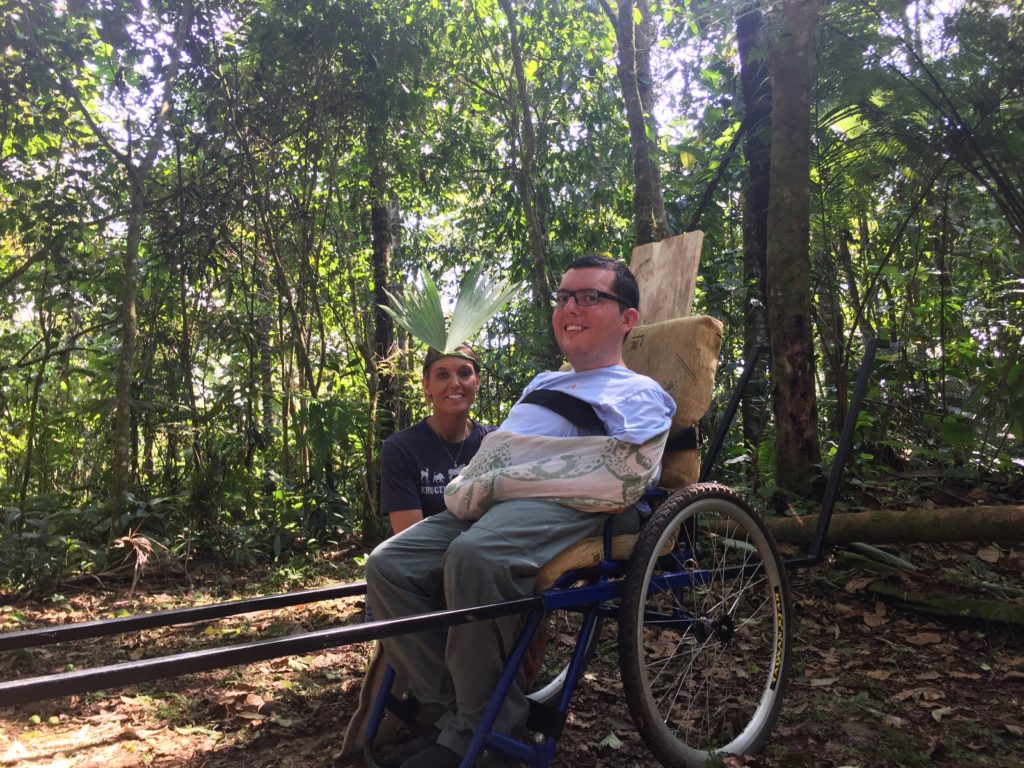
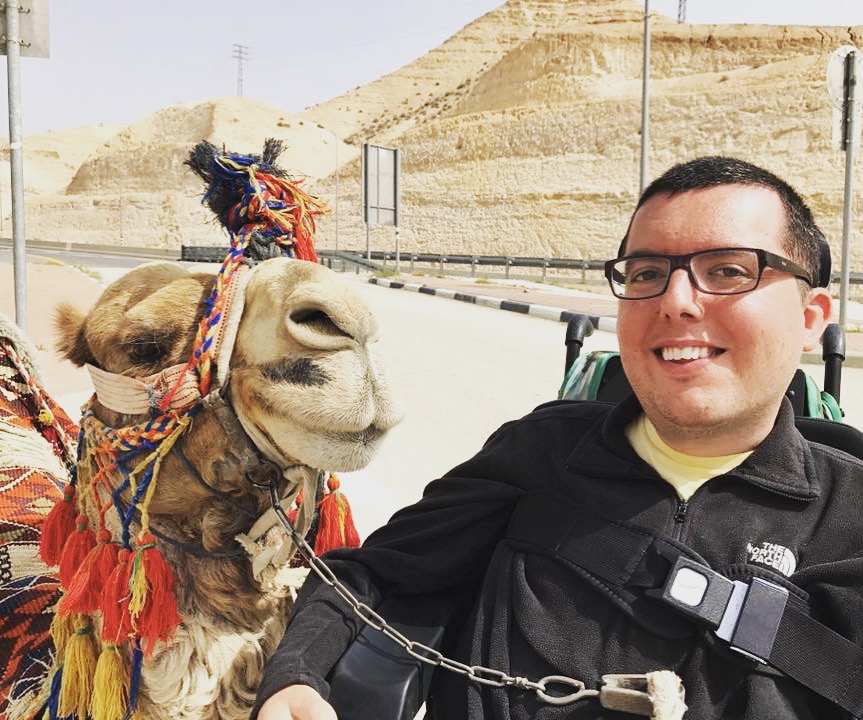
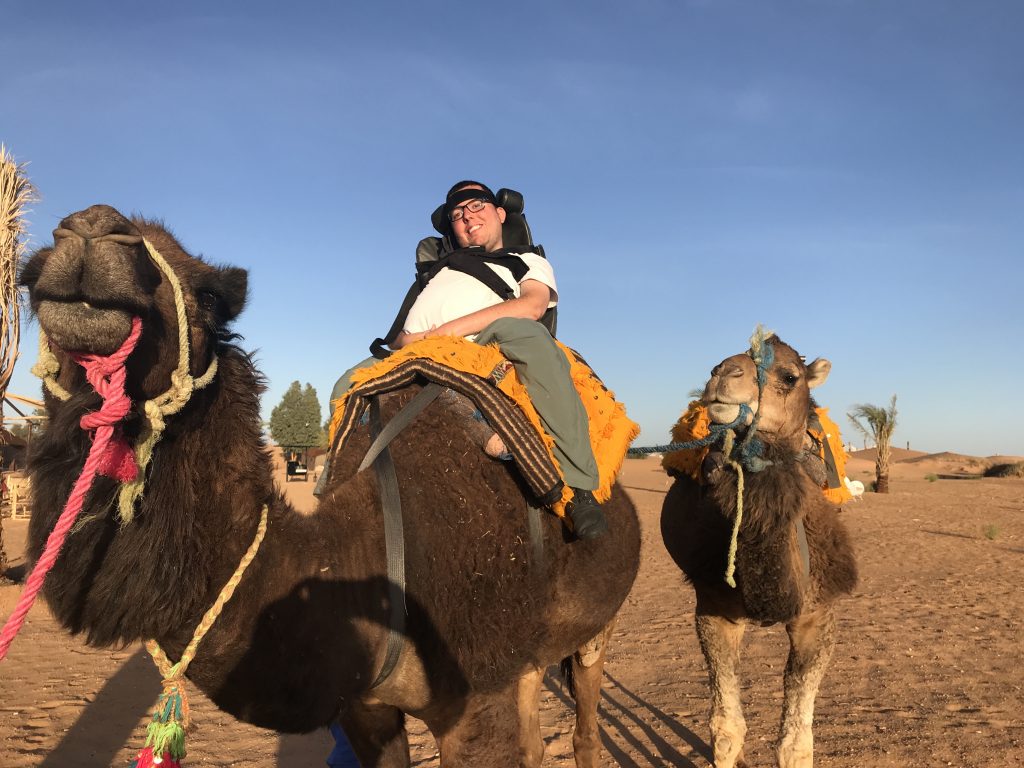
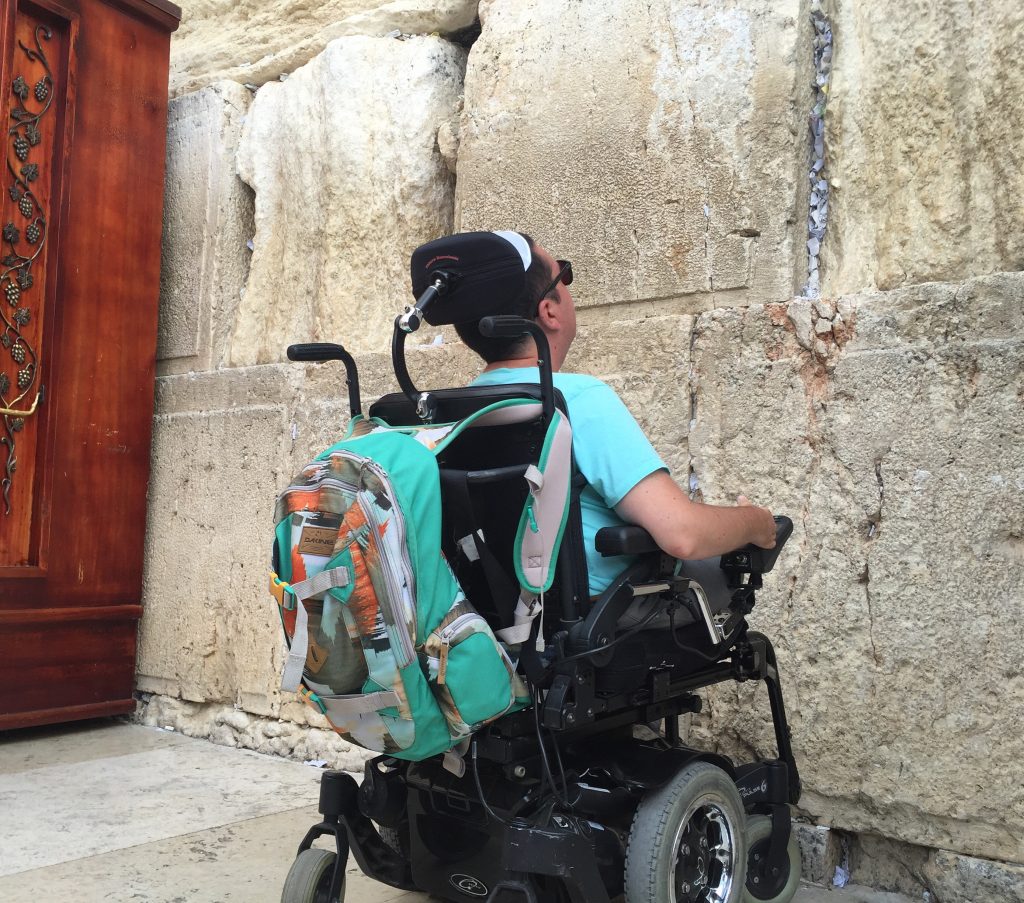
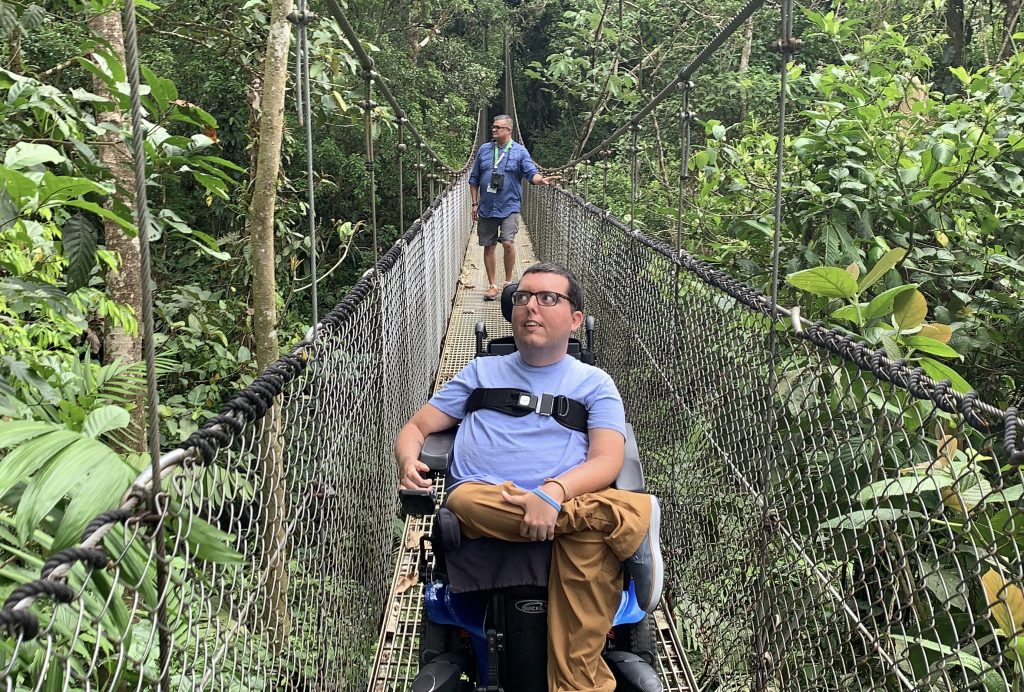
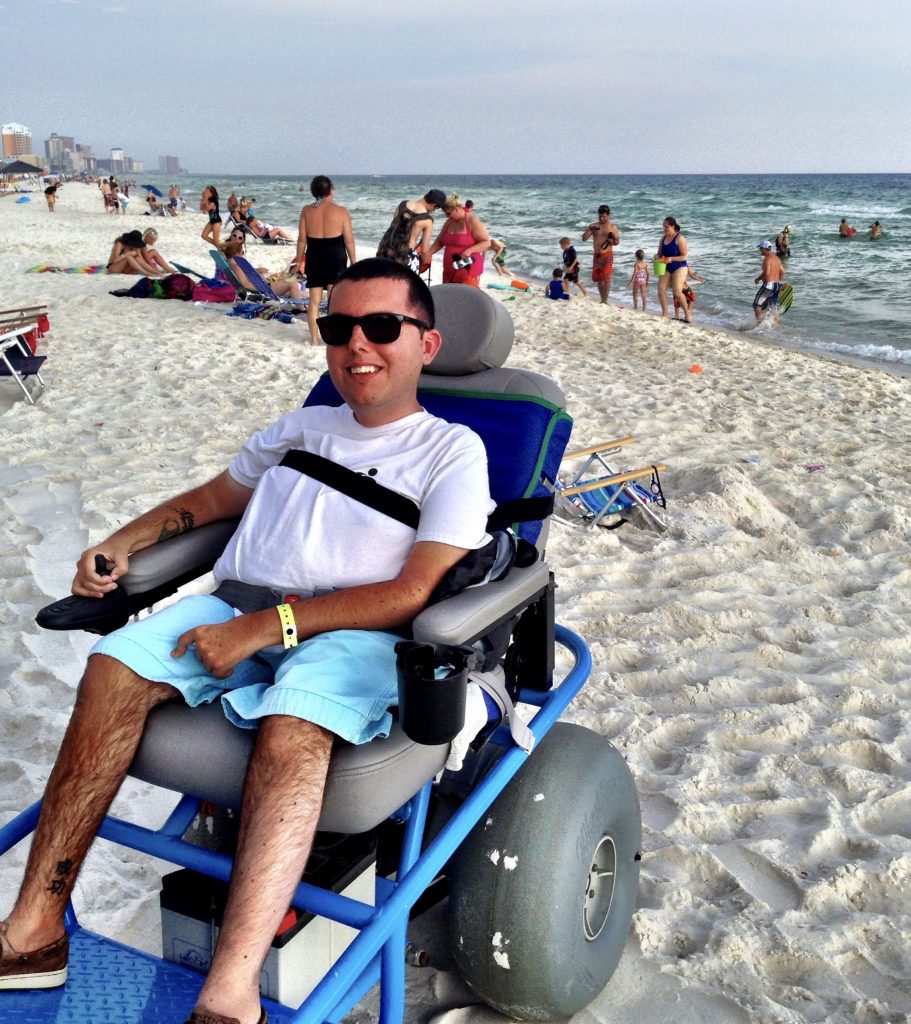
This is an incredibly powerful interview Cory. Thank you for sharing your story.